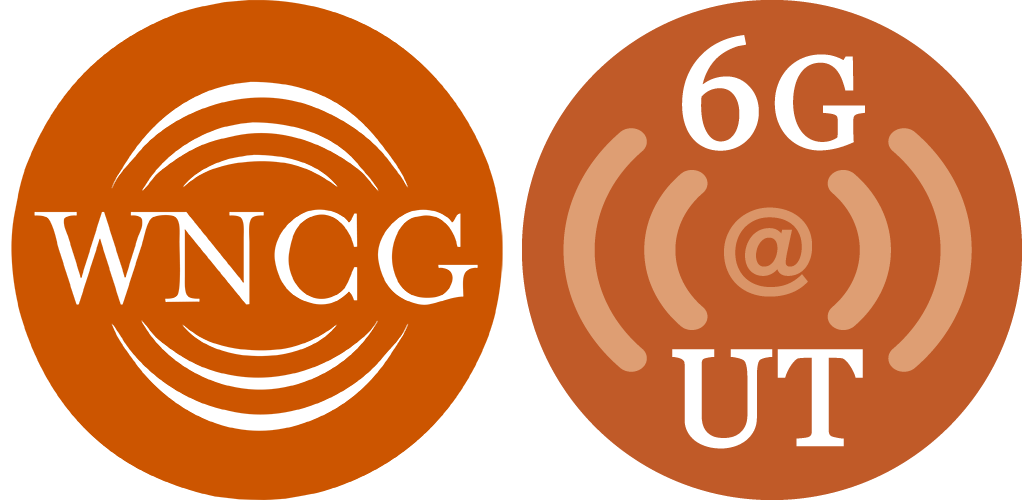Past Events
Event Status
Scheduled
Nov. 13, 2012, All Day
Capacity projections from the International Mobile Telecommunications (IMT) have become outdated even before the next generation, i.e., the 4th generation (4G), wireless communications systems have been widely deployed. This is due to the fairly recent explosion and uptake of smart phones and smart services anytime/everywhere, and the thus associated data requirements.The trend is clearly towards splitting indoors and outdoors network designs, with focus on interoperation, support of mobility, high traffic levels and emerging bandwidth-intensive applications. Focusing e.g.
Event Status
Scheduled
Nov. 9, 2012, All Day
It is well-known that belief-propagation (BP) decoding of low-density parity-check (LDPC) codes is suboptimal and that the noise threshold of maximum-a-posteriori (MAP) decoding can be larger than the BP threshold. Recently, Kudekar et al. proved that regular LDPC ensembles can be spatially coupled (SC) so that the BP noise threshold saturates to the MAP noise threshold of the original ensemble. These SC ensembles are instances of LDPC convolutional (LDPCC) codes and the new proof explains an earlier observation by Lentmaier et al.
Event Status
Scheduled
Nov. 8, 2012, All Day
In the current work we deal with the problem of base station cooperation in the downlink of infinite wireless cellular networks. The positions of base stations are modeled by a Poisson point process. Each base station can choose to cooperate or not with exactly one of its Delaunay neighbours in order to provide service to a user located within its cell. The cooperation protocol uses a variation of the so-called Willems' encoder and a fixed total transmission power per user is considered.
Event Status
Scheduled
Nov. 2, 2012, All Day
While information theory was initially developed specifically for the study of reliable communication systems, it has found broader applications in areas as diverse as biology, cryptography, or machine learning. More recently, motivated in part by the emergence of distributed cyber-physical systems, information theory has also been used to develop the basis of a theory of coordination over networks. The central idea behind the approach is to view the transmission of data between nodes in a network as a means to coordinate their behaviors, and not as an end in itself.
Event Status
Scheduled
Nov. 1, 2012, All Day
We study the trade-off between delivery delay and energy consumption in a delay tolerant network in which a message (or a file) has to be delivered to each of several destinations by epidemic relaying. In addition to the destinations, there are several other nodes in the network that can assist in relaying the message. We first assume that, at every instant, all the nodes know the number of relays carrying the packet and the number of destinations that have received the packet.
Event Status
Scheduled
Oct. 12, 2012, All Day
Increasingly, optimization problems in machine learning, especially those arising from high-dimensional statistical estimation tasks, involve a large number of variables. As regards the statistical estimation tasks themselves, methods developed over the past decade have been shown to have *statistical or sample complexity* that depends only weakly on the number of parameters, when there is some structure to the problem, such as sparsity. A central question is whether similar advances can be made in their *computational complexity* as well.
Event Status
Scheduled
Sept. 13, 2012, All Day
Wireless networks are inherently limited by their own interference. Therefore, a lot of research focuses on interference reduction techniques, such as mutiuser MIMO, interference alignment, interference coordination or multi-cell processing. Although these techniques might lead to considerable performance gains, it is unlikely that they will be able to meet the demand for wireless data traffic in the future. Therefore, a significant network densification, i.e., increasing the number of antennas per unit area, is inevitable.
Event Status
Scheduled
Sept. 11, 2012, All Day
With the exponential increase in high rate traffic driven by a new generation of wireless devices, data is expected to overwhelm cellular network capacity in the near future. Femtocell networks have been recently proposed as an efficient and cost-effective approach to provide unprecedented levels of network capacity and coverage.
Event Status
Scheduled
Sept. 5, 2012, All Day
Peer-to-peer networks are networks without a massive central server. Instead, each peer in the network transmits the data it receives to a subset of other peers in the network, thus propagating information in the network. We will illustrate the application of random graphs to the problem of designing simple distributed algorithms for peer-to-peer streaming applications (such as live video) that can achieve high throughput and low delay, while maintaining a very small neighbor set for each peer. The talk will be based on joint work with Joohwan Kim.
Event Status
Scheduled
May 4, 2012, All Day
The problem of recovering a sparse signal from an underdetermined set of linear equations is paramount in many applications such as compressed sensing, genomics, and machine learning. While significant advances have been made in this area, providing useful insights and intuitions, many important questions are still open including the fundamental performance limits of the recovery algorithms.

